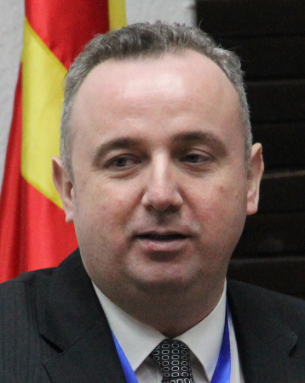 NAKOV, Leonid (leonid.nakov@eccf.ukim.edu.mk)
NAKOV, Leonid (leonid.nakov@eccf.ukim.edu.mk)Prof. Leonid Nakov, Ph.D., from Ss. Cyril and Methodius University in Skopje, Faculty of Economics – Skopje, is in academic terms Full Professor. He is focused on teaching the following scientific disciplines: Fundamentals of Management, Change Management, Business Ethics and Scientific - Research Ethics, at all study cycles – Graduate, Master and Doctoral degree. As a member of the Management Department, he serves as Secretary at the Master Program in the fields of MBA Management, as well as Management in Insurance, active member of the Committee for International Cooperation at Ss. Cyril and Methodius University in Skopje, currently coordinates several academic and professional international projects.
Prof. Nakov, obtained his Doctoral degree in the field of Strategic Management of Organizational Changes, whereas his Master degree has been placed in the field of Management of Organizational Culture. Obtained numerous academic and professional training programs, at prominent domestic and international institutions, such as NISIET, India; CEEMAN, Slovenia; Institute for Business Education, Russia; Center for European Studies, Germany; Faculty for Economy and Business Education, Iceland; Barry University, USA etc.
The fundamental objective of OBOR has been placed at developing an economic, infrastructural, environmental, as well as socio-economic grounds for a closer cooperation and transfer of experiences in the relations of 16+1 mechanism between China and CEE countries, especially having in mind various economic and business environments, strategic developmental goals and advanced economic sectors of CEE countries, including Republic of North Macedonia.
It is evident that China is actively present at the moment in developing countries dominantly in infrastructural investments which would potentially lead to several integrating cooperative tendencies, especially in transfer of know-how, new business models, restructuring the portfolio of products or services, raising higher public awareness and responsibility in public-private cooperation etc.